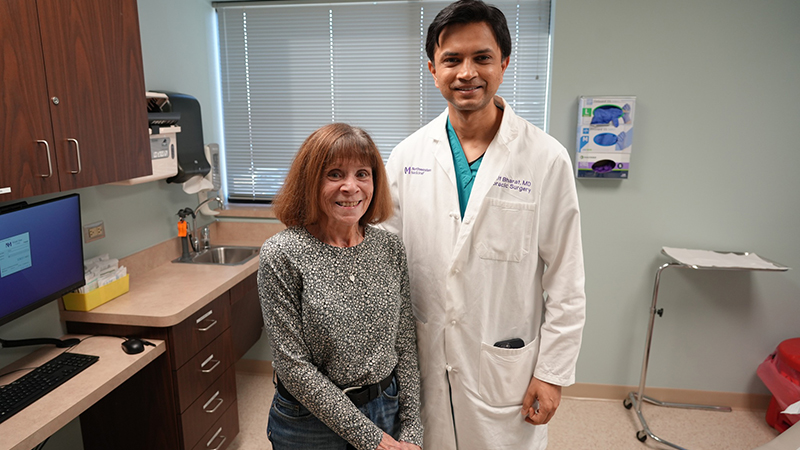A New Target for Antidepressants
Scientists Find New Path in Brain to Ease Depression
This article was originally published in the Northwestern University Feinberg School of Medicine News Center.
A new pathway in the brain can be targeted to treat depression, according to research from Northwestern Medicine scientists. The pathway offers a promising new focus for developing new medications that could be effective for individuals for whom other antidepressants have failed.
Between 10 and 20 percent of the population will experience major depressive disorder at some point in their life and a significant number of patients do not see their symptoms adequately improve with the antidepressant options currently available.
“Identifying new pathways that can be targeted for drug design is an important step forward in improving the treatment of depressive disorders,” said Sarah Brooker, the first author and a student in the Medical Scientist Training Program at Northwestern University Feinberg School of Medicine. Brooker conducted the study in the lab of senior author John Kessler, MD, the Ken and Ruth Davee Professor of Stem Cell Biology in the Department of Neurology in the Division of Comprehensive Neurology.
The aim of the team’s research is to better understand how current antidepressants work in the brain. The ultimate goal is to find new options that are more effective for people not currently experiencing relief from existing drugs.
In the study, scientists showed for the first time that antidepressant drugs such as Prozac and tricyclics target a pathway in the hippocampus called the BMP signaling pathway. A signaling pathway is a group of molecules in a cell that work together to control one or more cell functions. Like a domino chain, after the first molecule in a pathway receives a signal, it activates another molecule and so forth until the cell function is carried out.
Brooker and the team discovered that Prozac and tricyclics inhibit this pathway, thus triggering stem cells in the brain to produce more neurons, called neurogenesis. These particular neurons are involved in mood and memory formation. However, Prozac acts on multiple mechanisms in the brain, so the scientists could not be sure whether blocking the pathway contributed to the drugs’ antidepressant effect.
Improvements in Animal Trials
To test their hypothesis that blocking the pathway and stimulating new neurons would have an antidepressant effect, the Northwestern Medicine scientists tested a brain protein, Noggin, on depressed mice. Noggin is known to block the BMP pathway and stimulate new neurons, but the team discovered Noggin blocks the pathway more precisely and effectively than Prozac or tricyclics. It had a robust antidepressant effect in mice.
Scientists gave the mice Noggin and observed the effect on mood by testing for depression and anxiety behavior. A sign of depression in mice is a tendency to hang limply when held by the tail, rather than trying to get upright. After receiving Noggin, mice energetically tried to lift themselves up. The mice were then put in a maze with secluded spaces indicating safety and open spaces suggesting the area was less safe. The Noggin mice were less anxious and explored more mazes than the control mice.
“The biochemical changes in the brain that lead to depression are not well understood, and many patients fail to respond to currently available drugs,” Kessler said. “Our findings may not only help to understand the causes of depression, but also may provide a new biochemical target for developing more effective therapies.”






